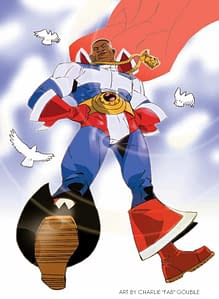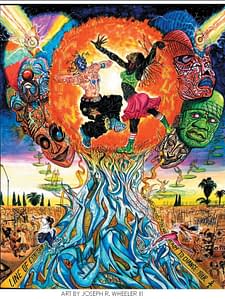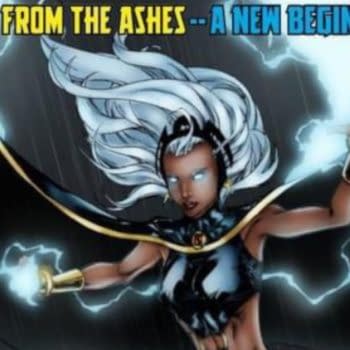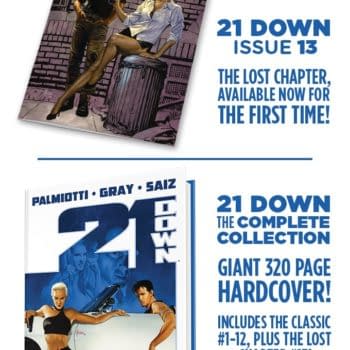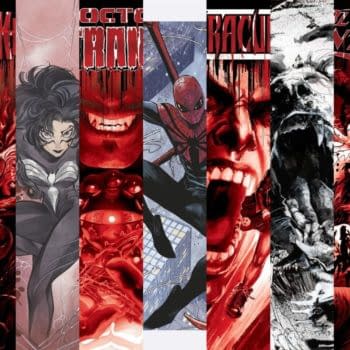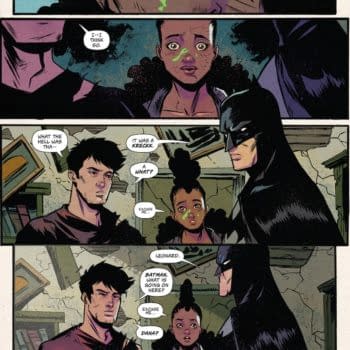Posted in: Comics | Tagged:
Greg Baldino On Black Comix – Part Three
Continued from part two

Damian Duffy: The thing to be gained by comics creators from developing an audience outside the conventional comics mainstream is an audience outside the conventional comics mainstream. The comics mainstream, which I tend to think of as largely direct market comics shops that order exclusively from Diamond and heavily from the front of the Previews catalog, is unfortunately the market that spawned wince-worthy concepts like "girls don't read comics" (at least until the manga boom of the early-00s) and "black books don't sell." Lots of female creators and creators of color have been historically marginalized by that comics mainstream. Lots of these creators do work that is quite aggressively outside or opposed to the sorts of stories that interest the unfortunately insular, Wednesday-focused, comic shop crowd.
And it's not just the overtly, or I guess raucously political work. Take someone like Jerry Craft. His strip Mama's Boyz is really focused not only at positive portrayals of African American families, but also at the kind of all-ages readership that doesn't hang out at the traditional local comic shop. He can get his work in a Chicken Soup for the Soul book, but not a comic shop, there's obviously a disconnect between the audiences reached by reached by the comics mainstream and the wider potential audience for comics.
I mean, obviously these are generalizations, and one of the points of Black Comix is to eschew generalizations. We have Afua Richardson in the book, for example, who does amazing work for Top Cow, which is right in the comics mainstream. And of course not every comic shop is the Simpsons' Android's Dungeon cliché, and my hat's off to any comic shop still making a go of it in this economy. But still, there's this inescapable concern I think a lot of us share, that comics has a seat reserved at the table of 21st century media, but it's still sort of shuffling its feet, acting like a member of the wait staff. And that's unacceptable. So if it means going outside the traditional markets to realize comics' untapped potentials, let's do that.
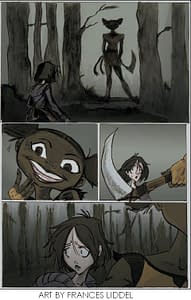
John Jennings:I personally hope that it expands how black people see art and themselves as subjects in it.
The pop culture of expressions of the comics medium are every bit as valid anything you would see in a municipal gallery space. Also, we hope that we can show that the medium can do more than show perpetually young white men in tights beating up bad guys. The medium is open to any expression just like any other. Because of the isolation of the comics medium from the treatment of it as juvenile literature, America has deprived itself of a cultural expression that almost inherently promotes diversity.
I think the book is very good starting point to inspire the exploration of these ideas and we truly hope that whoever sees it will feel the same.
Damian Duffy: I read an interview with Harvey Pekar in the most recent issue of Juxtapoz last week, a few days before he died oddly enough, and in it he was saying the same stuff he says in most interviews, and I think in the movie too, that comics is far behind other arts in its evolution, capable of anything but clinging to a really limited focus. (Superheroes, mainly.) Then I was reading Rich Johnston on your guys' site the other day, quoting an Alan Moore interview where Moore's saying the same sort of thing. Obviously you can just write this sort of thing off as curmudgeons being curmudgeonly. And, granted, both Pekar and Moore don't seem to be readers of recent comics, and seem to be talking almost exclusively about the Anglophone comics mainstream. And I thought Rich (who I've decided I'm on a first name basis with just because) made an important point, that Alan (or A-Dogg, as I like to call him) was overreacting on purpose, just to raise the ol' British two-finger salute to the industry that jump-kicked him in the sensitive bits a time or two.
But, nonetheless, if a couple of the widest known names in comicdom—two of the guys who were really committed to pushing comics forward, outward, upward, and in new directions we don't have names for yet—if comics as an industry or culture leaves those kinds of creators frustrated and unimpressed and generally nonplussed, then I think there's still a great need to explode conceptions of who can make comics and what comics can be made do. John and I want Black Comix, and everything we do, to light the fuse.
Really, I just think comics is a much more useful and interesting way to communicate if we think about it as something capable of being made by lots of different people to say lots of different things.
Black Comix: African American Independent Comics Art and Culture, by Damian Duffy and John Jennings, is published by Mark Batty Publisher.
Greg Baldino lives and writes in Chicago, where he watches over the local comics scene like a posthuman autocrat. His fiction and journalism has appeared in many publications internationally. He can be contacted at greg.baldino@gmail.com.


